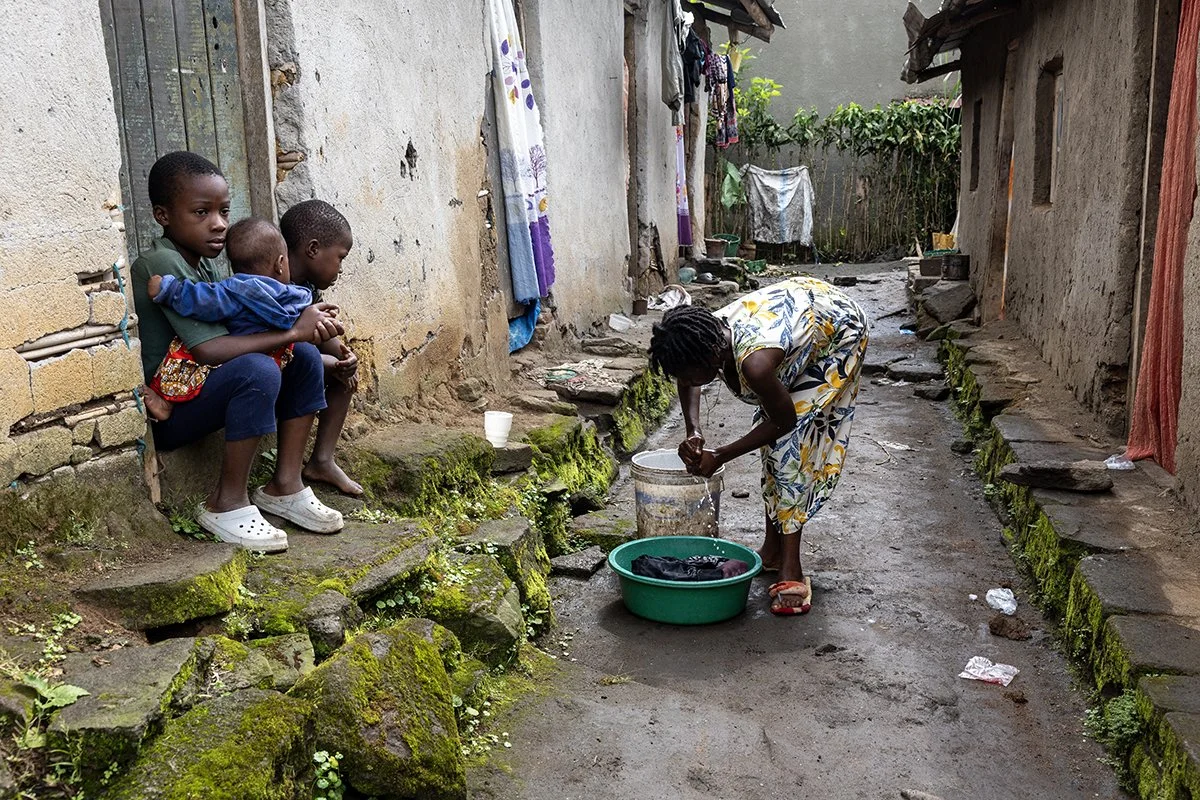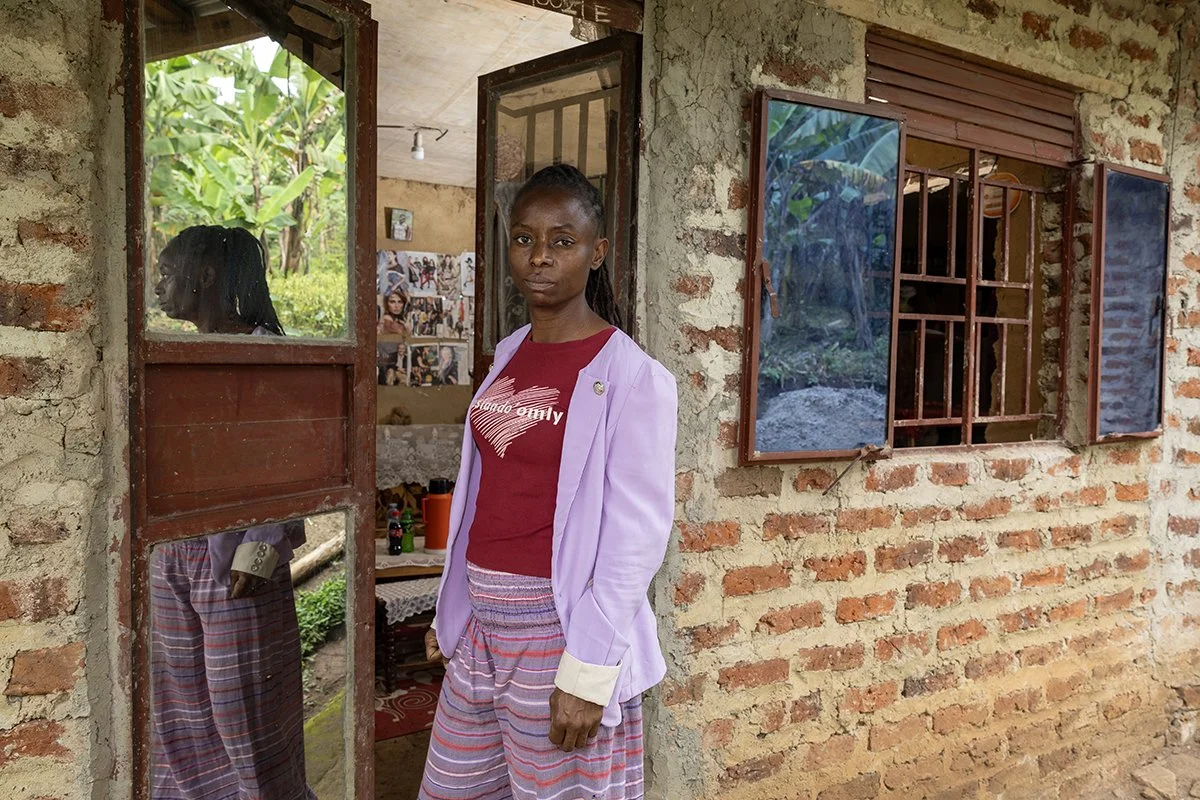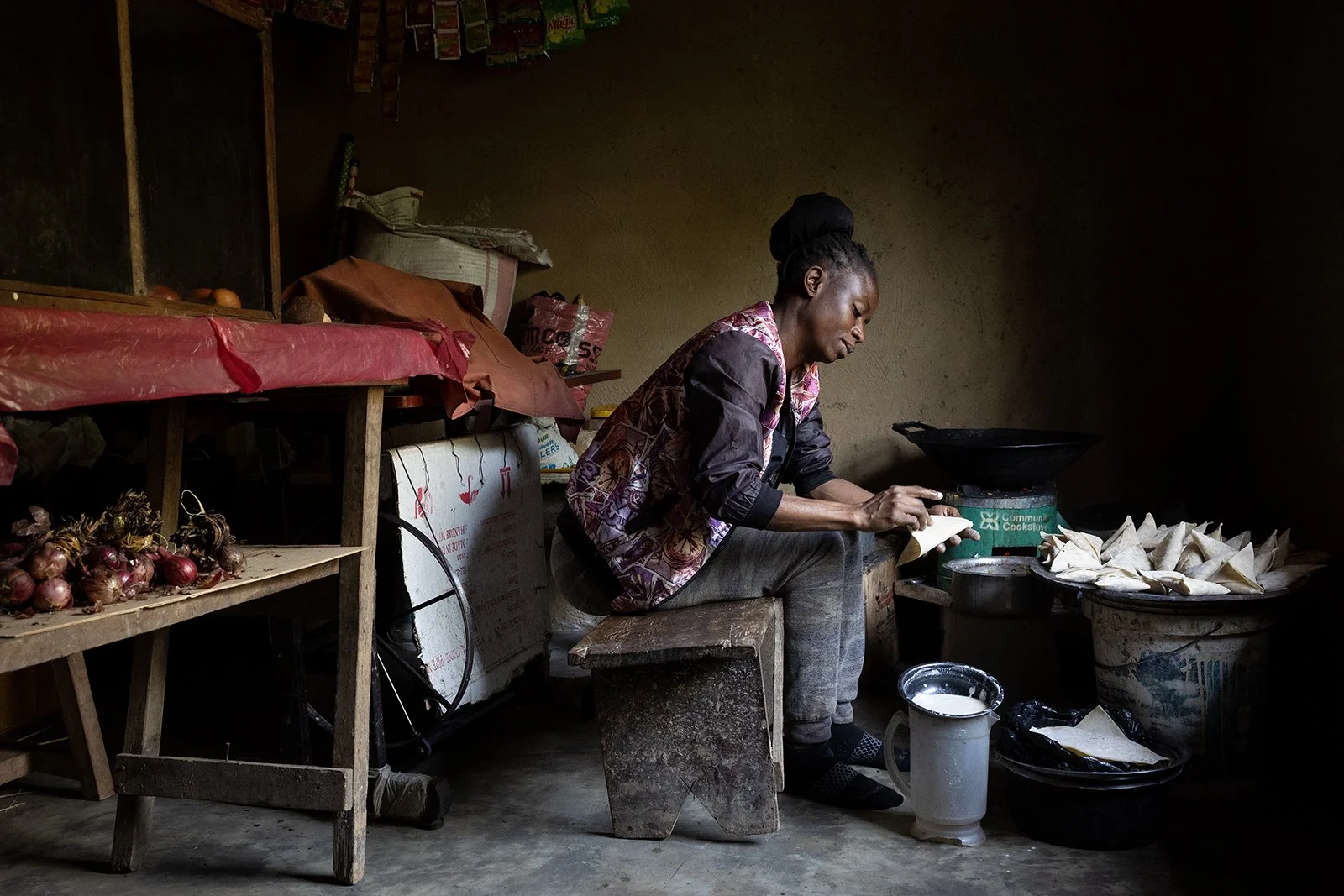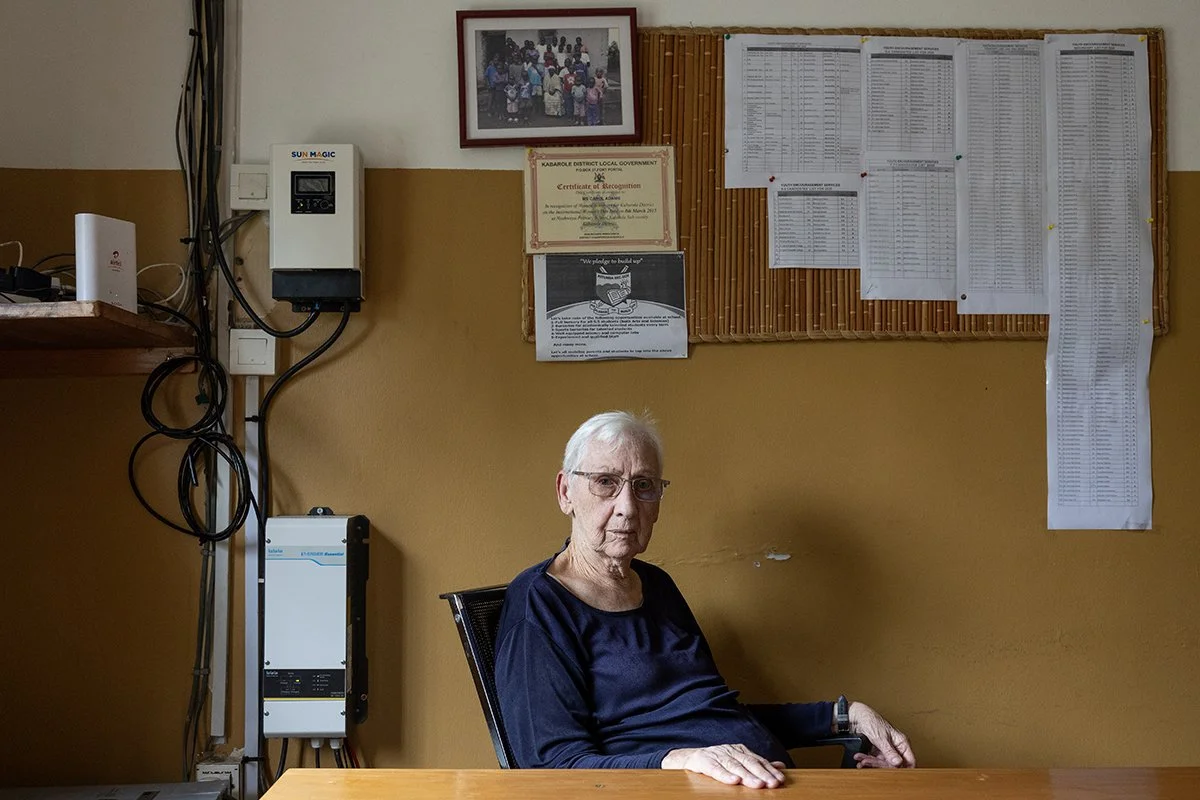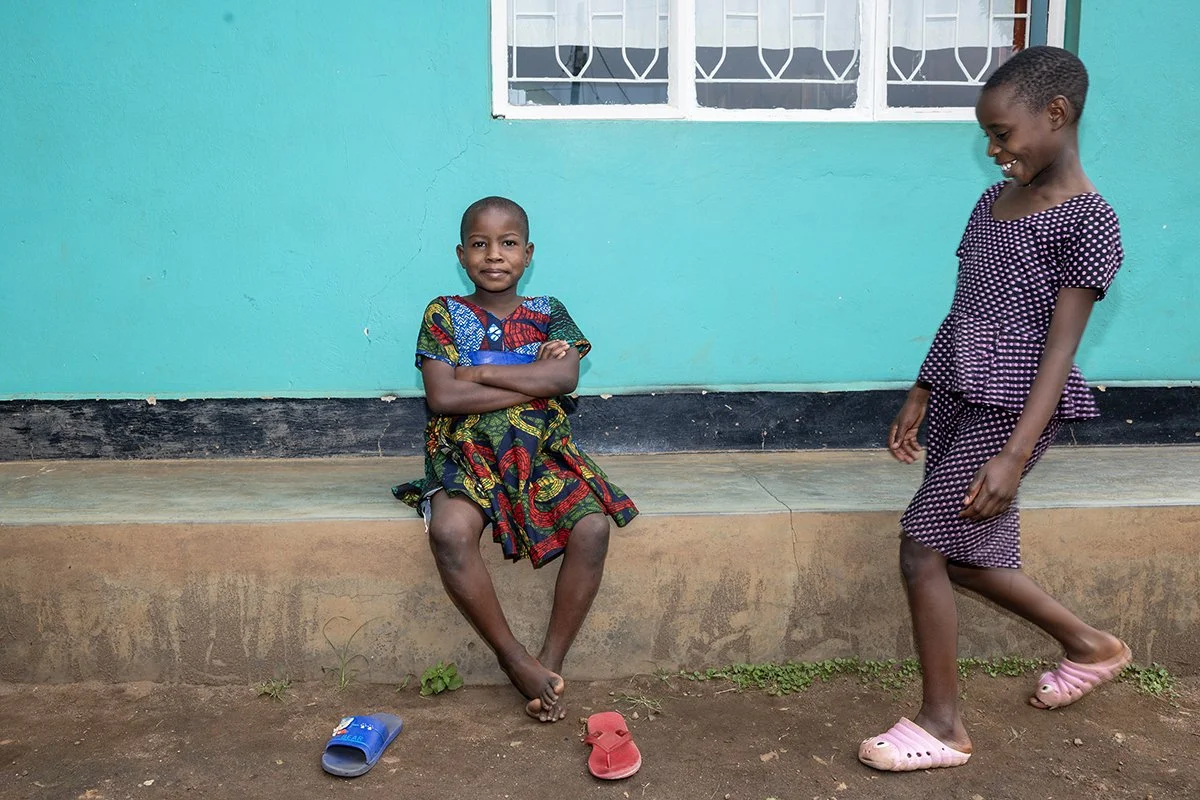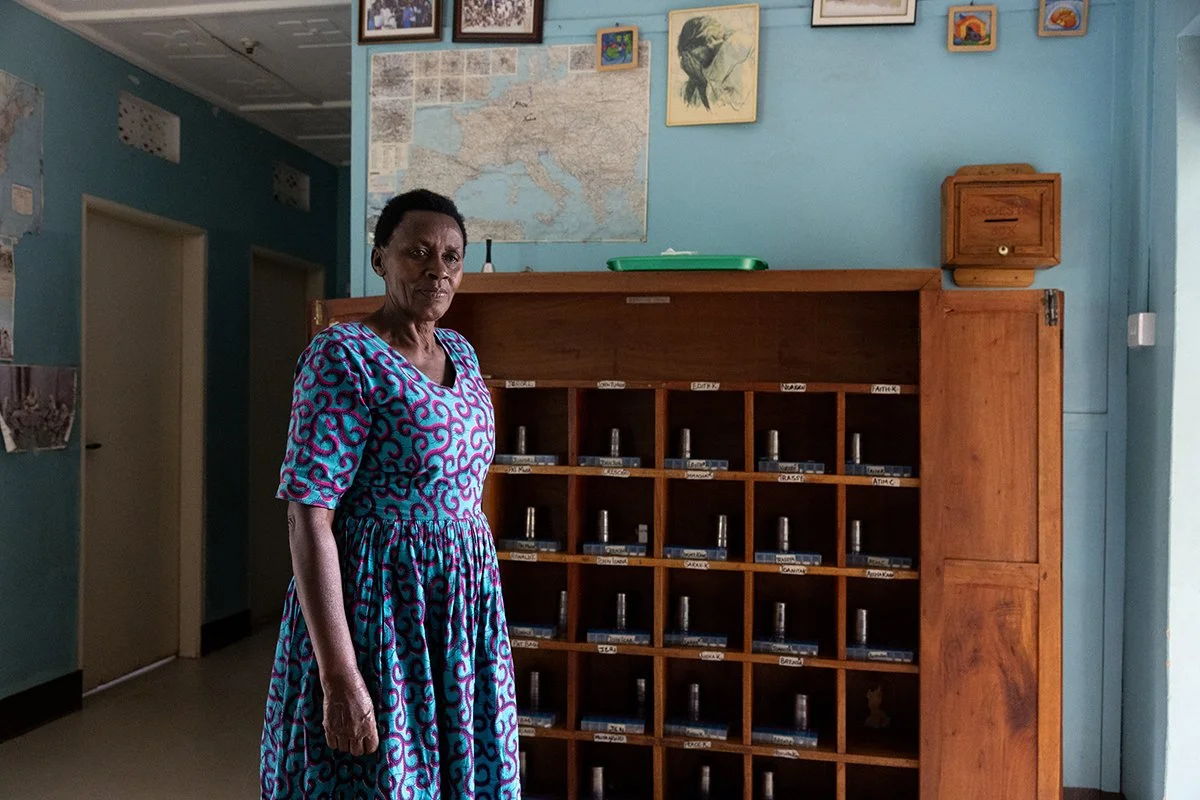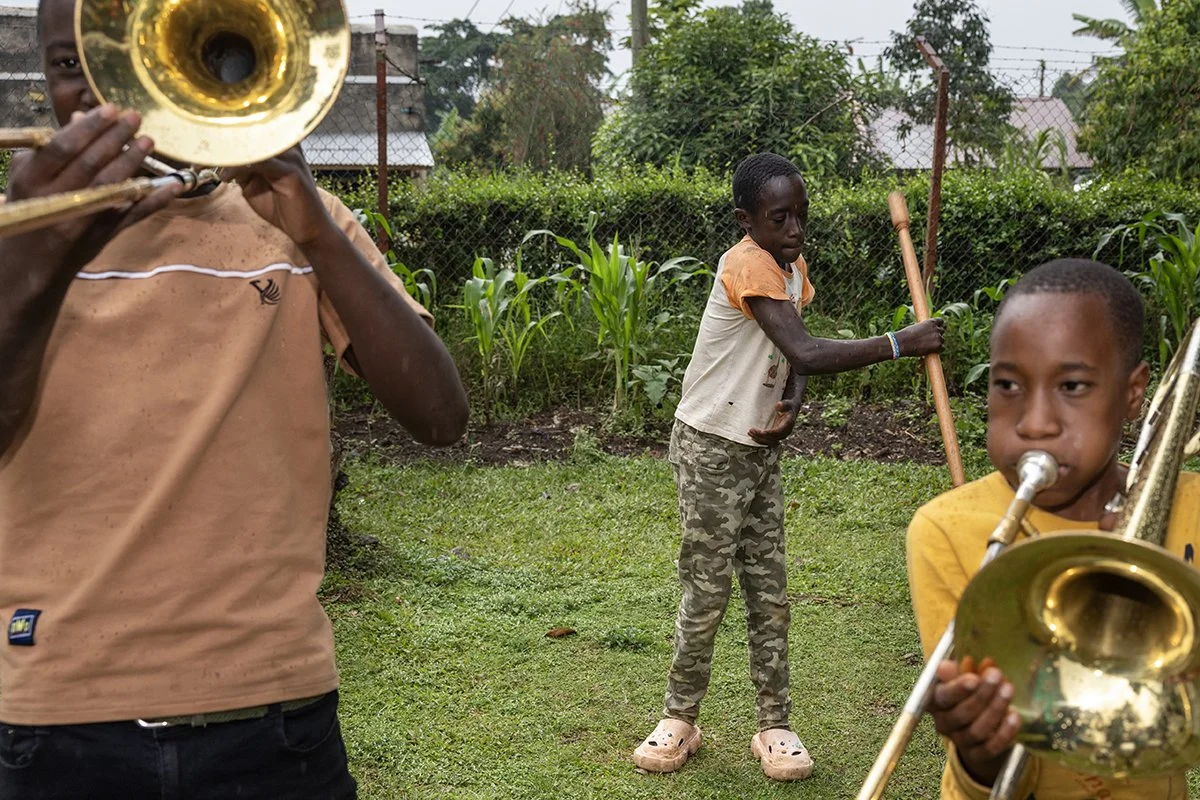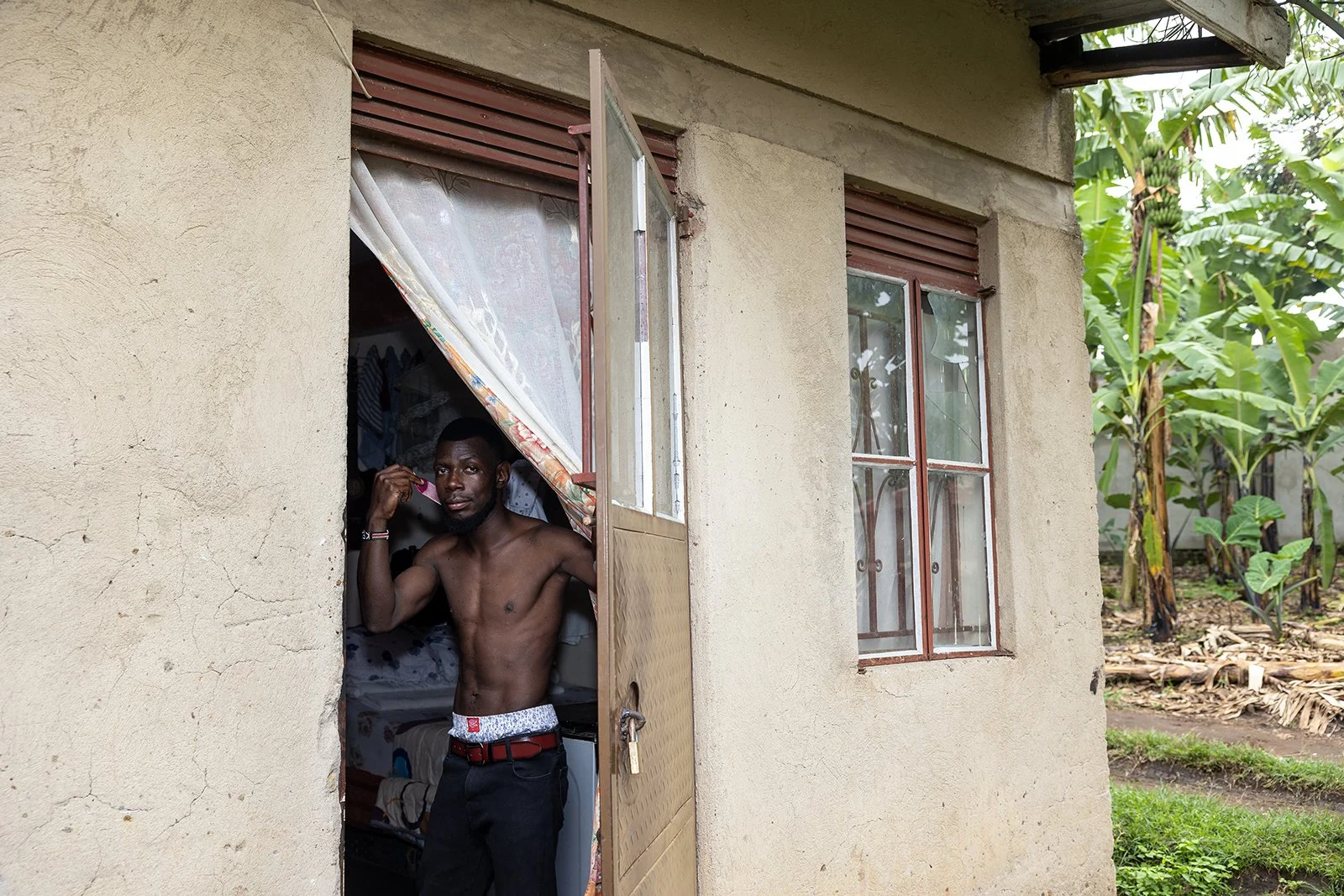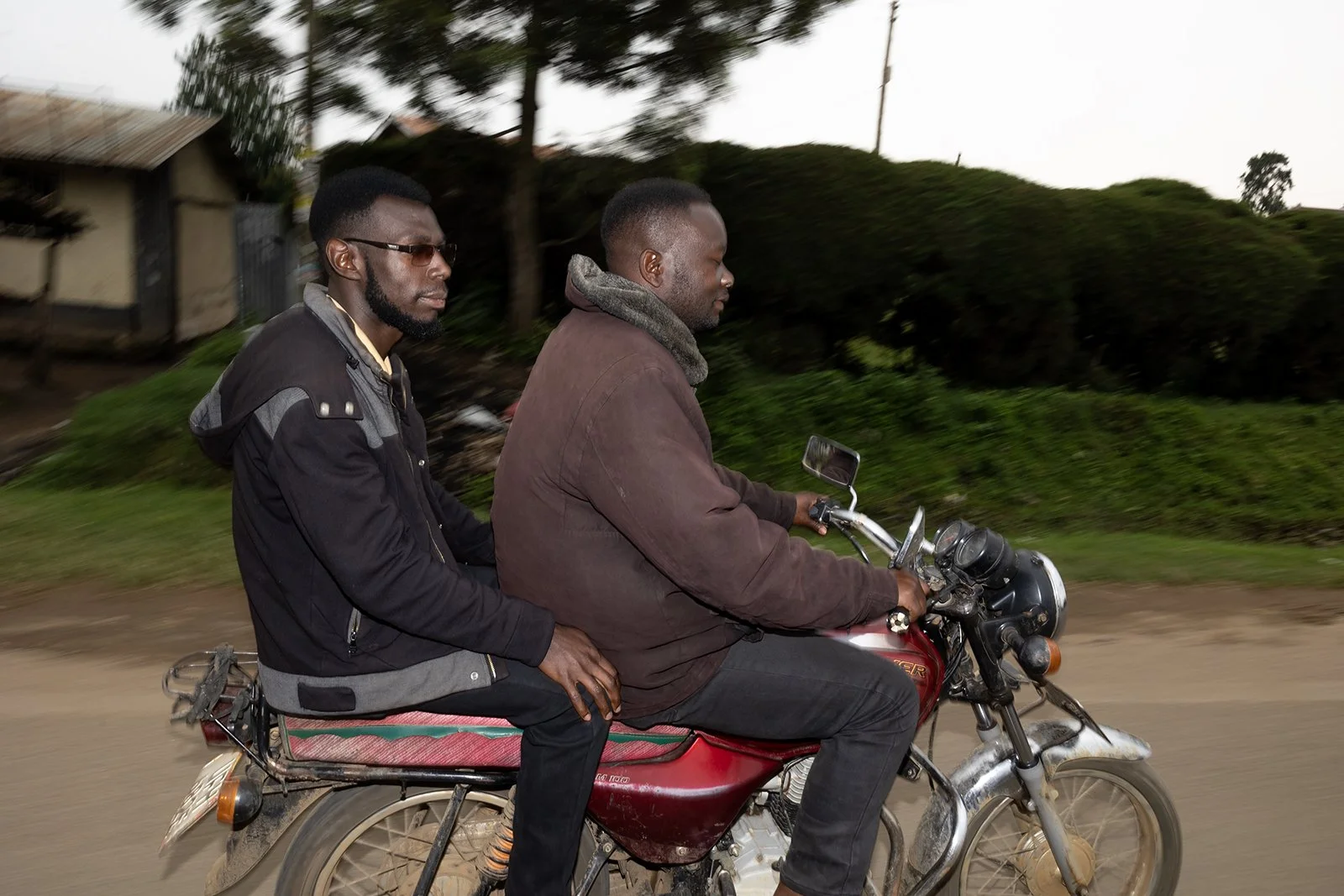For many Americans the debate around PEPFAR and USAID has been based on political sides. I aimed to tell a story about the communities impacted by these programs. I chose to self fund this story in Uganda because the country has one of the highest rates of HIV infection in Africa. I also have a story about the refugee settlements and about how changes to PEPFAR have impacted the LGBTQ+ community in Kampala. I am not posting those here for complex reasons but they will be ready for publication after I leave the country.
Fort Portal is a mountain city in western Uganda, close to the border with the Democratic Republic of Congo. The community is now facing the combined impact of the PEPFAR freeze in February and USAID cuts. Hospitals and clinics have been hit especially hard, with staff reductions and financial shortfalls that have left them struggling to provide services.
For women, the crisis is even sharper. Many living with HIV are survivors of sexual violence, and carry a heavy responsibility for their families. They are left to carry the weight when support systems collapse.
If PEPFAR is cut or significantly changed, it risks a wider spread of HIV through sexual transmission and from mother to child. Even if PEPFAR continues, the loss of USAID support could limit access to lifesaving ARVs. Patients may have to travel to district hospitals instead of receiving medication at local HIV clinics, adding costs many cannot afford.
I have interviews with each of the people photographed, and together their voices help lay out a story of which many Americans are unaware. This is a story about policy and about people. In the coming weeks I’ll continue researching to fill out the reporting, but this photo story begins to show what I have collected. I am still working on this story and have not yet had the time to go through the interviews and pull the quotes that bring this story to life. The captions for these photos are based on my memory of interviews and the information may change slightly as I sift through the information.
This story shows there is heart in the struggles and successes.
Kahunde Rose stopped taking the antiretroviral (ARV) medications provided free through PEPFAR in March. When funding was frozen, hospitals and clinics began rationing supplies. Instead of six-month supplies of the prescriptions, they could only provide one month at a time. Rose had to travel 8 miles to Fort Portal every month for refills, and the cost made it impossible for her to stay on the medication.
Kahunde Rose contracted HIV after being sexually assaulted in her home. Two men broke through her door, which was secured only with a stick and bent nails, a common lock for low-income families in Uganda. Rose did not know that post-exposure prophylaxis (PEP) was available for free and could have protected her from the virus.
Doctors have told Kahunde Rose that if she does not restart her ARVs she will die. They warned that even a short break can make the virus resistant, reducing the chances the drugs will work for her and save her life.
Kahunde Rose earns about 60,000 Ugandan shillings, or $16, a month as a teacher’s aide and about 3,000 shillings, or a little less than $1, a week doing laundry for neighbors. A round trip to Fort Portal for her ARVs costs nearly 16,000 shillings, or $4.
Hanifah Faridah was diagnosed with HIV in her teens. She contracted the virus while caring for her aunt, who was dying from tuberculosis. Faridah treated her aunt’s sores without protective equipment. Her aunt and uncle were undiagnosed. Her uncle later died from HIV complications.
Hanifah Faridah has taken her ARVs daily since her diagnosis and runs a small business making and selling samosas to restaurants in Fort Portal. She received a micro-grant and saved for years to build her house by hand where she can operate her business and build a stable life for her children.
Hanifah Faridah keeps her ARVs by her bed, next to her Quran. She would not be able to afford the medication if PEPFAR were cut, and all of her children were born without HIV because of the ARVs.
Hanifah Faridah keeps her ARVs by her bed, next to her Quran. She would not be able to afford the medication if PEPFAR were cut, and all of her children were born without HIV because of the ARVs.
Carol Adams started Youth Encouragement Services and Mana Rescue Home to serve children living with HIV in Fort Portal. Many of the children were orphaned when their parents died from HIV or have been forced from their villages due to the stigma associated with the illness.
At Mana Rescue Home in Fort Portal, two girls are on a third-line HIV regimen. Their names are withheld to protect them from community stigma. First- and second-line treatments failed to reduce their viral load. If this regimen fails, there are no further options. Each line requires stricter adherence to the complex daily regimen and higher costs, which would be impossible without PEPFAR.
Vaola Kerangi, a nurse, manages daily ARV treatment for the children at the home. She stands in front of the next round of ARV doses.
The home covers each child’s school fees. In Uganda, school is not free and costs can be daunting for families. The children also learn skills such like playing music, which can be a way to earn extra money in the country.
Biriungi Tinah was diagnosed with HIV at 15 after being raped by her uncle. She said she thought her life was over and wanted to kill herself. In the early 2000s, she started and stopped treatment, before modern ARVs offered the same promise of life. She returned to care when medications became free through PEPFAR in 2008.
Biriungi Tinah struggled financially for years before receiving a microgrant from Crazy Love Africa to open a small shop near a military barracks that houses 9,000 Ugandan soldiers. She often hides her HIV status because of stigma. She has since expanded her business. She now raises pigs and goats and owns a boda boda, a motorcycle taxi that she rents to a local driver.
Biriungi Tinah's children all are in school or have graduated and help her with her business. Each of her children are HIV negative, spared mother to child transmission due to ARV's she was able to access because of PEPFAR.
The pharmacy at the YAWE Foundation medical clinic still bares the USAID logo despite the program no longer providing aid to the community.
Dr. Dakune Ronald gives test results to a patient at YAWE Foundation. YAWE has had to rely on expired HIV tests and limit ARV refills to one month's supply since PEPFAR was frozen earlier this year.
The clinical staff at YAWE Health Clinic have struggled to meet client needs since losing access to PEPFAR supplies in February. They are hopeful that the next round of funding at the end of August 2025 will offer additional medications and testing supplies for clients.
Muhanzi Brian works on YAWE Community Radio’s next broadcast. The program aims to reduce stigma for people living with HIV. Stigma often prevents individuals from seeking treatment and remains a barrier to stopping the spread of the disease in Africa.
Darren Ug was born with HIV at a time Ugandans didn't have easy or affordable access to treatment. HIV transmission from mother to child was common at the time but happens rarely now that PEPFAR provides ARVs. Ug has dedicated his life to helping individuals living with HIV and trying to prevent the spread of the disease within his community. He is an outreach worker for YAWE foundation and teaches community classes, mentors youth and helps develop social enterprise programs for the organizations.
Darren Ug rides on the back of a boda boda driven by Kaboha Richard. Boda bodas are a common form of taxi in Uganda. Ug travels through different districts encouraging people to get tested and seek treatment for HIV often sharing his experience living with HIV to help others feel safe to seek treatment.
Dr. Kato Joseph, medical director of Virile Hospital in Fort Portal said that the USAID cuts and PEPFAR freeze have had significant impacts on the hospital's ability to serve the community. The hospital has had to cut more than 10 percent of the hospital's staff and had to cancel contracts to remove medical waste. The hospital reignited a 100 year old incinerator to try and remove the dangerous material, but the bio-waste is building up.
The hospital was able to offer low cost low barrier services to the community because of USAID but the hospital is now struggling to meet the community's needs.
Dangerous bio hazard is accumulating between buildings because the hospital cannot afford to remove it.
A 100-year-old incinerator runs nearly around the clock to safely destroy medical waste. The hospital’s HIV clinic has faced funding cuts and often has long lines for services. Dr. Joseph said some patients stop treatment rather than be seen waiting because of stigma and ostracism. He asked that the line not be photographed to avoid patients leaving and forgoing care.
Crows feed on medical waste as it waits to be destroyed. Dr. Joseph said cuts to PEPFAR would devastate his community. Most people in Fort Portal cannot afford even a few dollars for medication. He said African countries are not prepared to manage HIV without U.S. support. If the United States withdraws, he believes Uganda and other countries will turn to Russia or China for help, shifting political allegiances.



